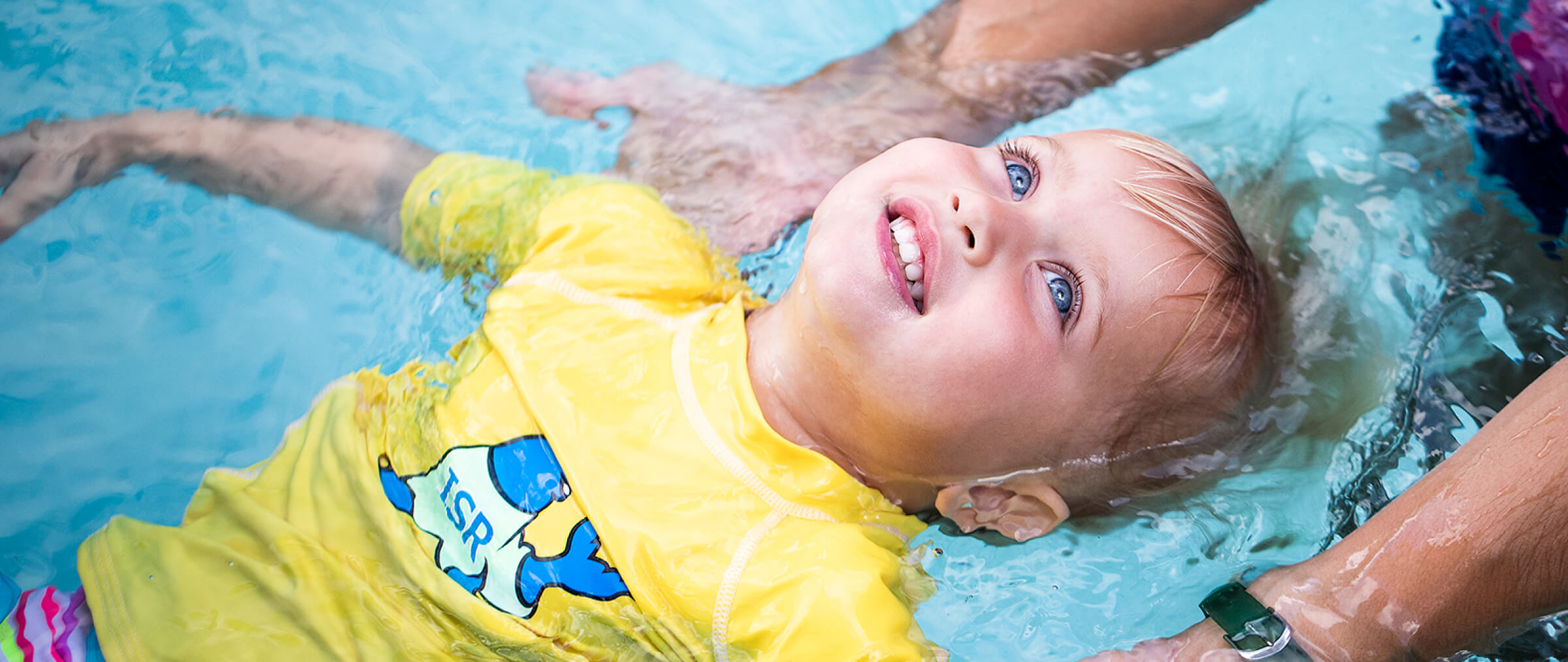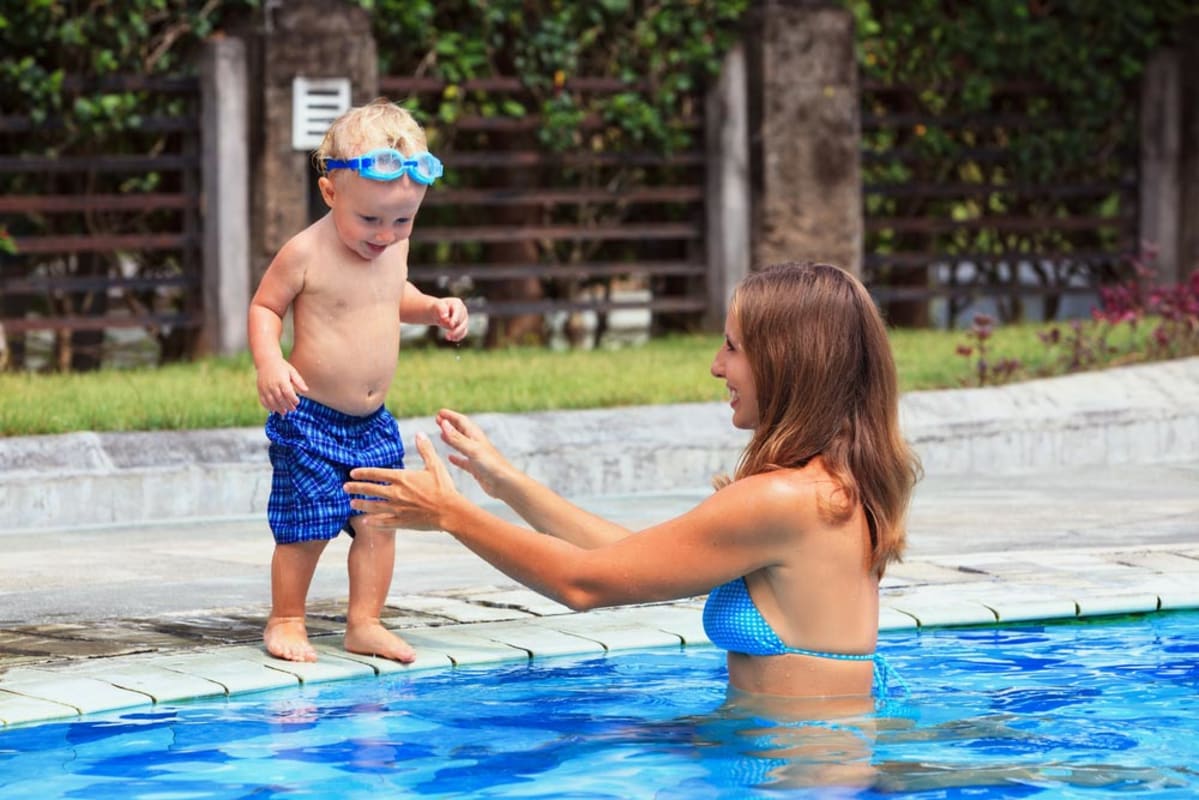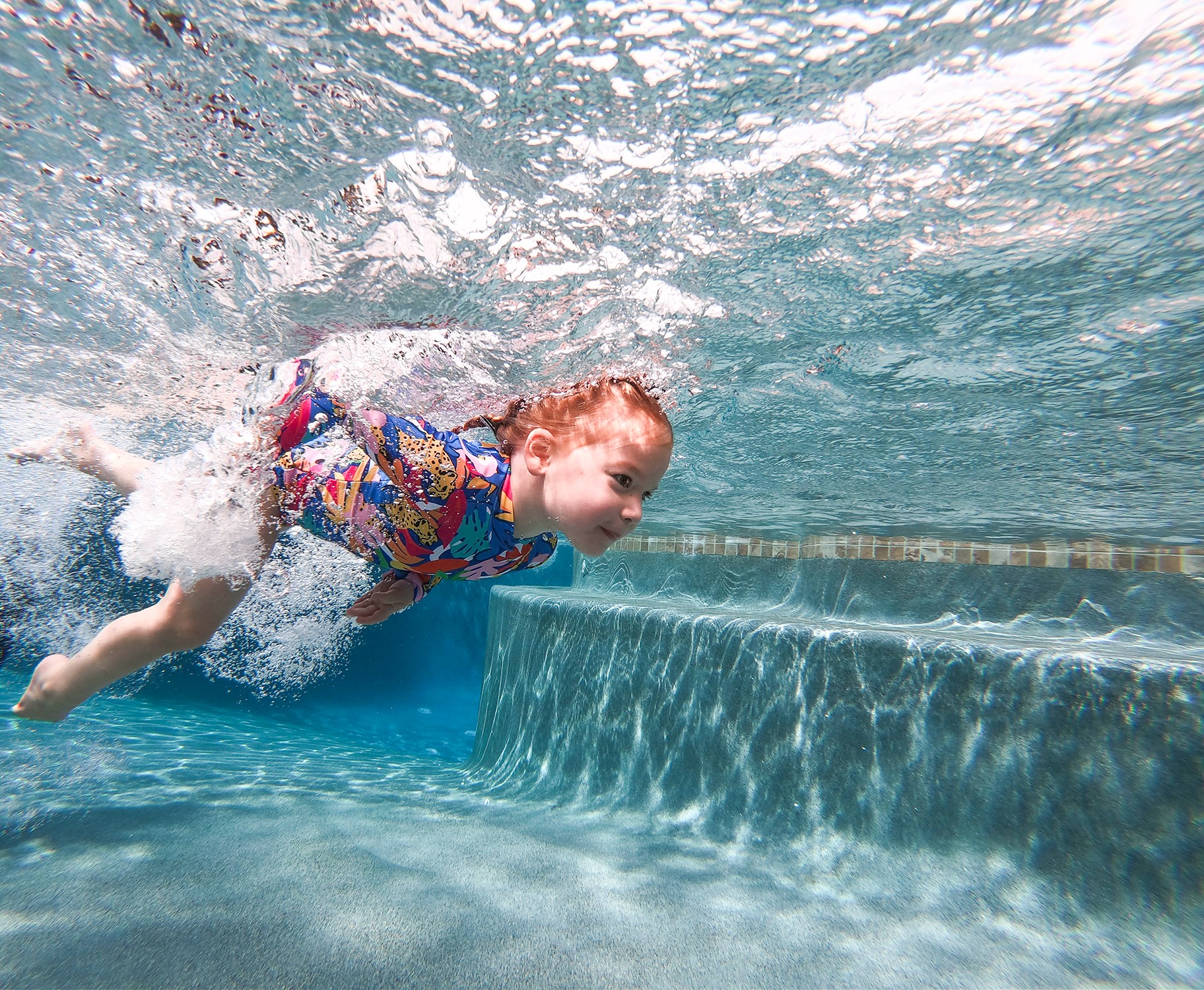Infant Swim Lessons: Giving Your Little One A Head Start In Water Safety
Bringing a new baby into the world fills your days with so much joy, and perhaps a few worries, too. One thought that often crosses the minds of many new parents is keeping their little one safe around water. This concern, arguably, leads many to consider early water education. It's almost natural for babies to enjoy water, given their time in the womb, and this early exposure can set the stage for a lifetime of comfort and confidence near water.
Learning about water safety for your baby can feel like a big task, yet it doesn't have to be overwhelming. Many parents wonder when the right time is to start, what kinds of lessons are available, and how these programs truly help. The idea of infant swim lessons might sound surprising to some, but these specialized programs are actually designed with a child's natural development in mind.
This discussion will explore the world of infant swim lessons, from the earliest age your child can begin to the different teaching methods available. We'll look at how these lessons build crucial water safety skills, help little ones feel at ease in the water, and provide a fun way for parents and babies to bond. So, basically, let's explore how these programs can benefit your family.
Table of Contents
- Why Consider Infant Swim Lessons?
- When Can Babies Start?
- Types of Infant Swim Programs
- Finding the Right Instructor or School
- Frequently Asked Questions
- Making the Decision
Why Consider Infant Swim Lessons?
Many parents, you know, find themselves asking why they should even think about infant swim lessons. The core reason, really, comes down to water safety. Drowning remains a serious concern for young children, and giving them early exposure to water, along with specific safety skills, can make a big difference. It's about equipping them with the ability to react in an unexpected water situation.
Benefits for Your Baby
Beyond safety, there are several wonderful advantages to starting swim lessons early. For one, these classes can help children become confident and skilled adult swimmers later on, their journey starting as early as infancy. Our "My text" notes that baby swim lessons, beginning as early as 2 months old, use the natural affinity newborns have for water from their time in the womb. This early start can help build a positive relationship with water, making future swimming experiences much more enjoyable. It's about nurturing that natural comfort, so they don't develop a fear of water later on.
These programs, too, often focus on positively nurturing a child's water experience. They use a fun, patient, and rewarding foundational approach. This can help build confidence and comfort in the water. For babies, this means getting used to the sensation of water, learning to move their bodies in it, and generally feeling at ease in an aquatic setting. It's a pretty gentle introduction, in a way, to a new environment.
- Outback Dinner Menu With Prices And Pictures
- Pewitt Cisd
- Nicole The Challenge
- Colt Gray
- Bar Bombon Philadelphia
Water Safety Skills
The primary goal for many of these lessons is teaching important foundational swimming and water safety skills. Programs like Aquakids and Safesplash, as mentioned in our text, teach these crucial skills to kids from 4 months to 3 years. This means learning how to respond if they accidentally fall into water, how to turn over, float, or reach for safety. It's not just about swimming laps; it's about survival. The American Red Cross, for instance, helps everyone learn to swim with confidence and offers certified water safety instructor programs. You can, of course, find a class near you or use their free Red Cross Swim App to track progress and learn water safety tips.
Safety is always a top priority for these programs. Infant Swimming Resource (ISR), for example, always puts safety first and emphasizes competence, which leads to greater security. They focus on what your child will learn and the unique way they will learn it, making their program quite different from traditional swimming lessons. This focus on competence means a child gains actual skills they can use, rather than just getting used to the water.
When Can Babies Start?
A common question is just how early a baby can begin swim lessons. Our "My text" shows that some programs offer baby swim lessons starting as early as 2 months old. Big Blue Swim School, for instance, has baby swim lessons for even the youngest swimmers, ages three months to three years, with their Baby Blue program helping build foundational skills for a lifetime. Other programs, like those mentioned for ages 4 to 35 months, or 4 months to 3 years, also cater to very young children. This means that, pretty much, from very early on, your little one can start their water journey.
The key, it seems, is that these early lessons capitalize on a newborn's natural affinity for water. They're not about teaching a baby to swim across a pool right away. Instead, they introduce them to the water in a safe, controlled way, helping them get comfortable and learn basic safety responses. It's about building that comfort and skill set gradually, over time. So, you know, there's no rush, but early exposure is definitely an option.
Types of Infant Swim Programs
When looking into infant swim lessons, you'll find a few different approaches, each with its own focus and style. Knowing the distinctions can help you pick the best fit for your family. There are, basically, programs that teach survival skills and others that focus more on water introduction and bonding. Understanding these differences is, in some respects, quite important.
Infant Swimming Resource (ISR)
ISR, or Infant Swimming Resource, is a program specifically designed to teach infants and children how to swim and survive in the water. It's a method that truly stands out because of its strong emphasis on self-rescue skills. Our "My text" highlights that ISR's mission is to ensure the safety of little ones by providing access to the best certified ISR instructors. They focus on competence, which leads to safety, and their teaching method is quite distinct from traditional swimming lessons. You can use the ISR locator tool to find a certified instructor near your zip code or address, and learn more about water safety tips and ISR's mission. It's a very specialized approach, apparently, to early water safety.
Parent and Tot Classes
Another popular option, and one that many parents really enjoy, is the "Parent & Tot" or "Baby and Me" class. These are water introductory group classes typically for infants and toddlers, often from 6 months to 2.5 years. Our "My text" mentions "Baby and Me" as a water introductory group class. These sessions are a wonderful way to bond with your baby and help them adjust to the water in a supportive environment. They focus on water comfort, play, and basic movements, with the parent actively involved in the water with their child. It's a gentle, fun way to introduce the aquatic environment, and you, like your baby, get to be right there learning together.
Foundational Skill Programs
Many swim schools offer programs that teach important foundational swimming and water safety skills, often for kids from 4 months to 3 years. These might be called "Baby Blue Program" or similar, as mentioned by Big Blue Swim School, which helps build the foundational skills a child needs for a lifetime. Premier swim schools, too, offer lessons for children from 4 months up to 12 years, making learning to swim fun. Safesplash Santa Clara, for example, helps build water safety skills and comfort in the water. These programs aim to introduce children to the water in a positive way, helping them become confident and skilled swimmers over time. It's about building a solid base, you know, for future swimming success.
Finding the Right Instructor or School
Choosing the right place and person to teach your little one can feel like a big decision. It's important to find instructors who are not only skilled but also patient and understanding with young children. After all, this is about building a positive early experience with water. You want someone who really understands how to work with infants, so, in some respects, it's a very personal choice.
Certified Instructors
Certification is, basically, a key thing to look for. Our "My text" emphasizes finding a certified instructor, whether it's an ISR instructor or a certified Water Safety Instructor® through the American Red Cross. These certifications mean the instructor has met specific training standards and understands how to teach water safety and swimming skills effectively and safely. It provides a level of assurance that you're getting quality instruction. You can, for instance, use the ISR locator tool to find a certified instructor near your zip code or address. This makes the search a little easier, honestly.
What to Look For
When you're checking out different swim schools, consider a few things. Look for places that prioritize safety, have warm indoor pools (like the 90° indoor pools mentioned for building confidence), and offer flexible scheduling options for different age groups. Schools like La Petite Baleen Swim Schools and SafeSplash are often chosen for infant swimming lessons. Some schools offer group lessons, which are their core program with 3 or 4 participants, while others might have more individualized approaches. It's also worth asking about the teaching philosophy—does it align with what you want for your child? Do they focus on fun, patience, or a more rigorous survival skill approach? You want a place that feels right for your family, and stuff.
Frequently Asked Questions
Parents often have similar questions when considering infant swim lessons. Here are a few common ones, you know, that might be on your mind too.
At what age can a baby start swim lessons?
Many programs welcome babies as young as 2 to 4 months old. The earliest lessons often focus on water adjustment, comfort, and basic safety responses, rather than traditional swimming strokes. Some programs cater to ages from 4 months to 3 years, while others, like Big Blue Swim School, start at three months. It really just depends on the specific program and their approach.
What will my baby learn in infant swim lessons?
What your child learns truly varies by program. Some, like ISR, teach self-rescue and survival skills, such as how to roll onto their back and float. Other parent and tot classes focus on water comfort, getting used to submersion, blowing bubbles, and basic movements like kicking and paddling, with the parent actively involved. All programs aim to build foundational water safety skills and comfort in the water, which is, honestly, the main point.
Are infant swim lessons safe?
Yes, when conducted by certified and experienced instructors in a controlled environment, infant swim lessons are generally considered safe. Programs always put safety first and emphasize competence. Instructors are trained to handle young children in the water and to create a secure learning atmosphere. It's important to choose a reputable school with proper certifications, and you can always check with organizations like the American Red Cross for guidelines on water safety and instructor qualifications. They really do prioritize the well-being of the children.
Making the Decision
Choosing to enroll your little one in infant swim lessons is a big step towards building their confidence and ensuring their safety around water. It's about giving them a skill set that could, quite literally, save their life, and it's also about fostering a love for the water. Whether you opt for a survival-focused program like ISR, a bonding parent & tot class, or a foundational skill program, the goal is to provide a positive and safe introduction to the aquatic world. You can learn more about infant water safety on our site, and link to this page here for more specific program details. Taking that first step can open up a world of fun and security for your child, and that's, you know, a pretty wonderful thing.

Infant Swimming Resource

The 10 Best Baby & Infant Swim Lessons Near Me (2025)

Infant Swimming Resource | Infant Swimming Resource